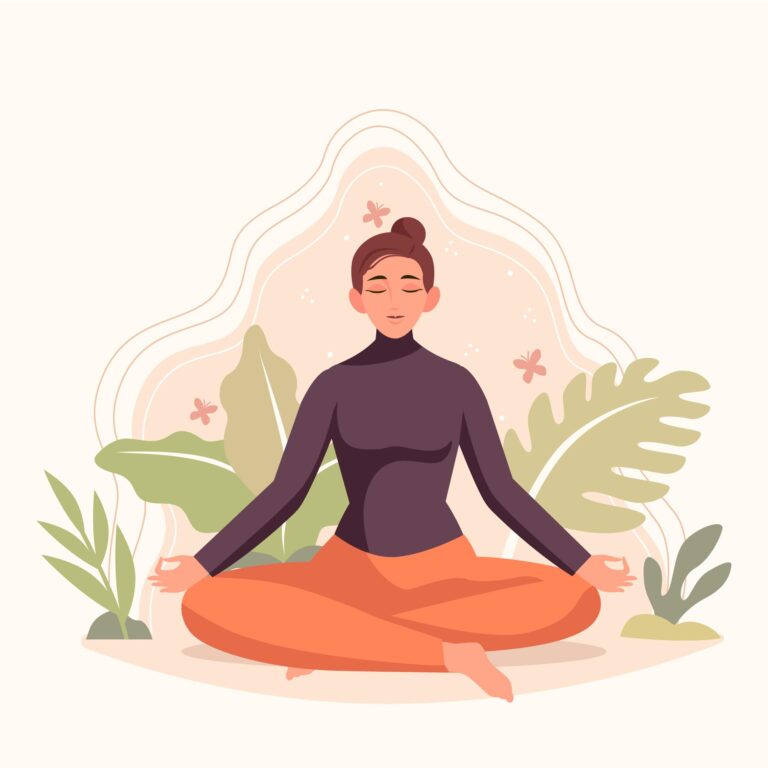Finding Peace Within: How Meditation Can Help Cure Anxiety

In today’s fast-paced world, anxiety has become a common ailment that affects millions of people. The constant pressures and stresses of everyday life can take a toll on our mental well-being, leaving us feeling overwhelmed and helpless. But what if there was a way to find inner peace amidst the chaos? Enter meditation – a powerful practice that can help cure anxiety and bring a sense of calm into our lives.
Studies have shown that regular meditation can significantly reduce anxiety levels. By quieting the mind and focusing on the present moment, meditation helps us let go of our worries and find a sense of tranquility. It allows us to observe our thoughts without judgment and develop a more positive outlook on life. With consistent practice, meditation can rewire the brain, leading to more balanced emotions and improved mental clarity.
So, if anxiety has been weighing you down, it’s time to explore the transformative power of meditation. Whether you’re a beginner or have dabbled in meditation before, this article will guide you on your journey to finding inner peace. Learn how to incorporate meditation into your daily routine and discover the tremendous benefits it can bring to your life. Embrace mindfulness, and unlock the path to a calmer, more centered existence.
Understanding anxiety and its impact on mental health
Anxiety is a natural response to stress, but when it becomes excessive and uncontrollable, it can interfere with our daily lives. It can manifest as constant worry, restlessness, irritability, and even physical symptoms such as rapid heartbeat and difficulty breathing. Chronic anxiety can lead to a range of mental health issues, including depression and panic disorders.
The science behind meditation and anxiety relief
Numerous scientific studies have shown that meditation can be an effective tool for reducing anxiety. When we meditate, our brain undergoes several changes that contribute to anxiety relief. One of the key findings is the decrease in the activity of the amygdala, the part of the brain responsible for processing fear and anxiety. Meditation also increases the activity in the prefrontal cortex, which is associated with positive emotions and emotional regulation.
Different types of meditation techniques for anxiety
There are various meditation techniques that can help alleviate anxiety. Here are a few popular ones:
1. Active meditation : There are many active meditation techniques which helps to get rid out of suppressed emotions, anger, anxiety and helps to calm down.
2. Mindfulness meditation: This technique involves focusing on the present moment and accepting it without judgment. By observing our thoughts and emotions as they arise, we can develop a more balanced perspective and reduce anxiety.
3. Guided visualization: In this technique, a meditation guide or audio recording helps us imagine a peaceful and calming scene, allowing us to escape from our anxious thoughts and find tranquility.
4. Loving-kindness meditation: This practice involves sending love and compassion to ourselves and others. By cultivating positive emotions, we can counteract the negative effects of anxiety and foster a sense of well-being.
Creating a meditation routine for anxiety relief
To experience the full benefits of meditation, it’s important to establish a regular practice. Here are some steps to create a meditation routine for anxiety relief:
1. Set aside dedicated time: Find a time and place where you can meditate without interruptions. Start with just a few minutes each day and gradually increase the duration as you become more comfortable.
2. Choose a technique: Experiment with different meditation techniques to find one that resonates with you. It’s okay to try different approaches until you find the one that suits your needs.
3. Create a calming environment: Find a quiet and comfortable space where you can practice meditation. You may want to decorate it with items that promote relaxation, such as candles or soft lighting.
4. Be consistent: Consistency is key when it comes to meditation. Aim to meditate at the same time every day to establish a routine and make it a habit.
5. Start small: If you’re new to meditation, it can be overwhelming to sit for long periods. Start with just a few minutes and gradually increase the duration as your practice progresses.
Tips for beginners to start meditating for anxiety
If you’re new to meditation, here are some tips to help you get started:
1. Start with any meditation technique : active or passive, if you find some good meditation center and meditation facilitator they provide step-by-step instructions and can be helpful for beginners. There are many apps and online resources that offer guided meditation sessions specifically designed for anxiety relief.
2. Focus on your breath: One of the simplest and most effective meditation techniques is to focus on your breath. Pay attention to the sensation of each inhale and exhale, allowing your breath to anchor you in the present moment.
3. Be patient with yourself: Meditation is a skill that takes time to develop. Be kind and patient with yourself, and don’t get discouraged if your mind wanders during meditation. Simply acknowledge the thoughts and gently bring your focus back to your breath or chosen point of focus.

External links – Mindful meditation


